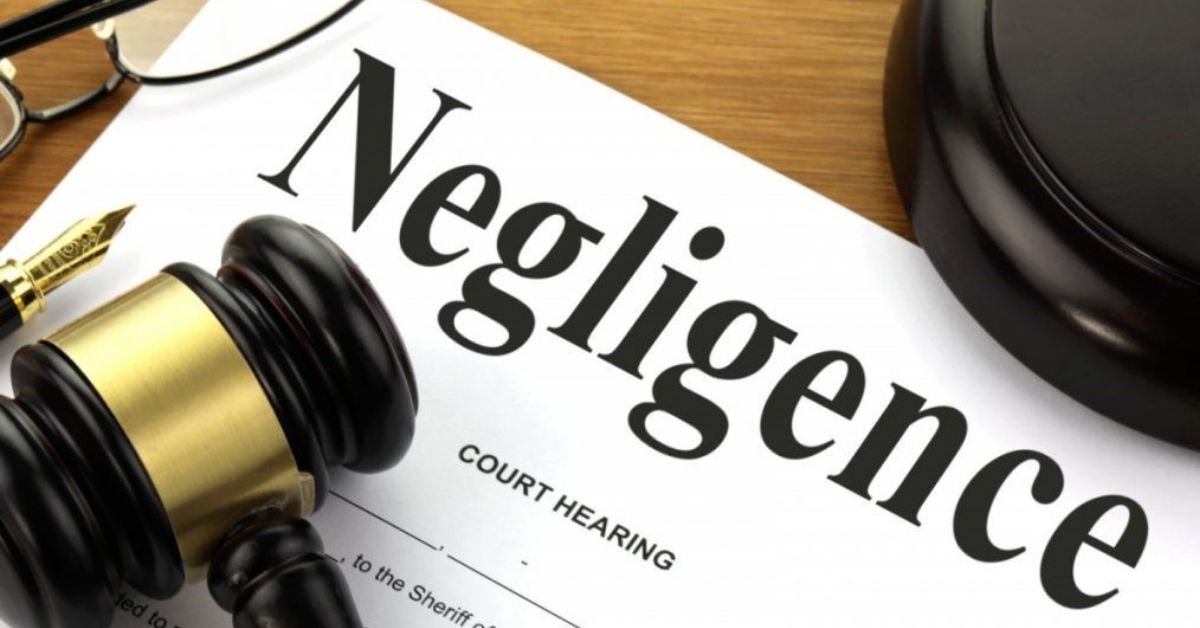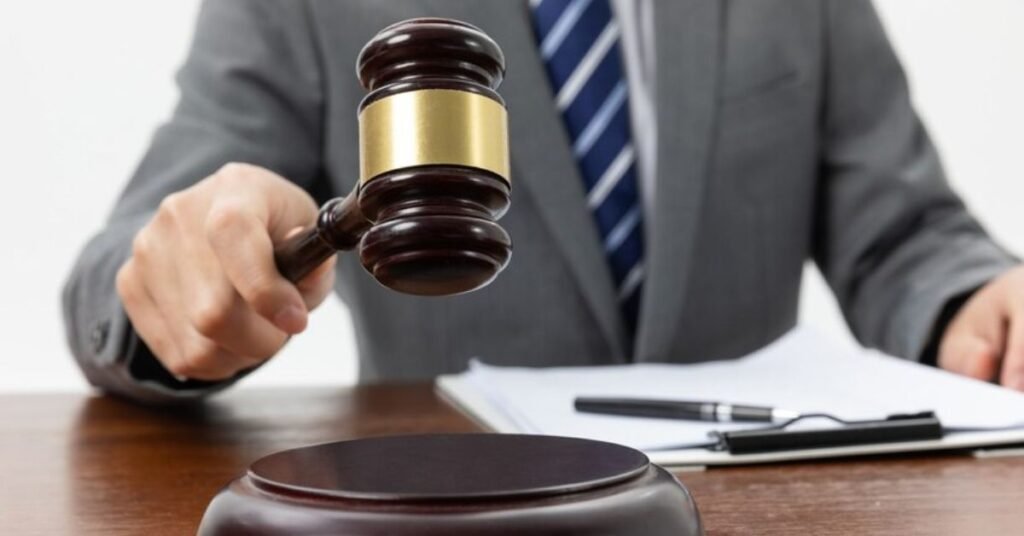Law
Here’s Everything You Need to Know About the Comparative Negligence Rule in Columbia

The legal principle of negligence, which is the failure of a person to exert a certain degree of care, is the foundation of a personal injury case. This is true in the District of Columbia as well.
For example, a restaurant in Columbia may be held liable for food poisoning if the cook neglects to monitor the temperature of a roasted chicken served to patrons.
How the defendant and plaintiff share fault is left to the discretion of each jurisdiction. This is called comparative negligence. The compensation the plaintiff receives will take a hit depending on their level of involvement in the accident.
This law is often used as a defense by insurance companies. This is why it is recommended to seek the assistance of experienced Columbia car accident attorneys. These are the professionals who know all about these laws. They can guide you through the entire process seamlessly and ensure your rights are protected.
This article sheds light on Columbia’s laws regarding comparative negligence.
Elements Involved in Negligence
The legal concept of negligence dictates that individuals must behave in a way that complies with their legal obligations and what a reasonable person would do. Common elements of negligence are listed as follows:
- The defendant owed the plaintiff a duty of care
- The defendant breached that duty of care
- The plaintiff’s injuries and the defendant’s actions are related
- The defendant’s actions resulted in damages for the plaintiff
Columbia’s Laws Surrounding Negligence
Only five states have contributory negligence blame systems. They are:
- Virginia
- North Carolina
- Maryland
- Alabama
- District of Columbia
Under this system, you could lose your right to compensation if you had some degree of fault in the accident. The primary negligence laws in Columbia are outlined mentioned below.
Section of the Code: Contributory negligence does not prevent recovery in motor vehicle accident cases, according to South Carolina Code Section 15-1-300. The South Carolina Contribution Among Tortfeasors Act is covered in South Carolina Code Title 15: Civil Remedies & Procedures, Chapter 38.
Modified Comparative Negligence: In 1962, South Carolina changed its definition of negligence for auto accidents to include modified comparative negligence. South Carolina switched to a comparative negligence system in 1988 for all tort or injury cases. This means that if the plaintiff’s fault in the accident was not greater than the defendant’s negligence, they will still be able to recover compensation. In an automobile accident case, the plaintiff just needs to be less than 51% at fault to be compensated.

Get Legal Assistance for Your Car Accident Claim in Columbia
If you have been injured due to medical malpractice, a car accident, or any other type of accident, you may receive compensation if you weren’t 51% or more at fault.
However, there is a fixed timeframe within which you may have to file the case. The more you delay, the more difficult it gets to gather evidence. This iterates the need for an experienced car accident lawyer. Their expertise is important to make sure you receive fair compensation for your losses.
Law
How Legal Expertise Can Guide You with Lemon Pickup Trucks

Table of Contents
- Understanding Lemon Laws for Pickup Trucks
- When to Seek Legal Help
- Role of a Lawyer in Lemon Law Cases
- Insights into Legal Processes and Procedures
- Steps to Take Before Hiring a Lawyer
- Choosing the Right Lawyer for Your Lemon Pickup
- Lessons Learned from Lemon Law Cases
Understanding Lemon Laws for Pickup Trucks
A pickup truck is commonly associated with a belief in strength and versatility. These vehicles are highly appreciated for their capability to navigate challenging terrains and transport heavy loads, which is why many owners favor them. However, when a newly purchased truck displays recurring mechanical issues, it can quickly turn from a dream vehicle into a costly and frustrating nightmare. Lemon laws are designed to protect consumers in such scenarios, ensuring they are not left stranded with a defective car after spending considerable money.
These laws provide a framework for legal recourse when a vehicle, such as a pickup truck, consistently fails to meet the standards promised by the manufacturer or the dealer. Typically, a truck can be classified as a “lemon” if multiple repair attempts fail to resolve its defects or remain out of service for extended periods. This classification is crucial for owners grappling with Ford F 150 problems, as it opens pathways for potential refunds, replacements, or compensations.
The specifics of lemon laws can vary widely from one state to another, with different thresholds for what constitutes a lemon. Some states might require the vehicle to be in repair for several days, while others focus on the number of failed repair attempts. However, the underlying principle remains consistent across jurisdictions—ensuring consumer protection against defective vehicles.
When to Seek Legal Help
Deciding when to seek advice from an attorney can significantly impact the course of a lemon law lawsuit. Seeking legal advice early on can be advantageous when consistent problems arise, especially if they continue even after several attempts to fix them. Lawyers specialized in lemon law cases can provide essential insights, helping to clarify whether a particular situation qualifies under lemon law statutes.
An early consultation can also help avoid potential pitfalls that vehicle owners may unknowingly encounter when dealing with complex legal processes. For instance, legal experts can guide you through correctly documenting each repair attempt and communication with dealerships, ensuring every detail is noticed. This proactive approach can expedite the resolution process and potentially enhance the outcome in your favor, offering you peace of mind in navigating a problematic situation with professional backing.
Role of a Lawyer in Lemon Law Cases
Lawyers play a multifaceted role in lemon law cases, combining legal acumen with strategic negotiation skills. Their first task typically involves thoroughly assessing the client’s situation to determine whether it meets the legal criteria for a lemon law case. They scrutinize all available documentation, from repair invoices to dealership correspondence, ensuring ample evidence to support the claim.
Beyond analysis, attorneys handle the complexities of the legal process, overseeing the preparation and submission of all necessary claims and paperwork. They act as intermediaries between the consumer and the dealer or manufacturer, negotiating an amicable settlement or preparing for court proceedings if necessary. Their expertise helps explore all potential remedies, whether obtaining a replacement vehicle, a refund, or a monetary settlement. With a lawyer, you can be confident that your consumer rights will be strongly protected.
Insights into Legal Processes and Procedures
The legal journey associated with lemon law cases can be intricate and taxing, requiring a robust understanding of specific procedural requirements. The process often involves multiple stages, including filing official complaints, engaging in arbitration, mediation, or proceeding to court if required. Those without legal training may find these procedures overwhelming, leading to errors that could put a claim at risk.
A seasoned attorney can demystify these processes, providing much-needed clarity and guidance. They ensure that every deadline is met and all legal protocols are observed, avoiding potential procedural pitfalls. Their role also includes providing strategic advice tailored to your case, helping you navigate the procedural maze more quickly and efficiently. Ultimately, their involvement can significantly increase the likelihood of a favorable outcome by ensuring compliance with all facets of the legal system.
Steps to Take Before Hiring a Lawyer
Preparation is a crucial element when considering engaging legal services. Before consulting with a lawyer, ensuring that all documentation is meticulously organized can lay the groundwork for a stronger case. This includes repair invoices, written communication with the manufacturer or dealer, and a detailed log of every repair attempt and its outcomes. These records substantiate the lemon law claim and provide your lawyer with the evidence needed to argue effectively on your behalf.
Clear and precise documentation forms the backbone of any successful legal strategy. It lets your lawyer focus more on strategic planning than evidence gathering. Maintaining a thorough and organized trail demonstrates a proactive approach, which can significantly bolster the case and give you a competitive edge in settlement negotiations or legal proceedings.
Choosing the Right Lawyer for Your Lemon Pickup
Choosing the proper legal representation is integral to effectively handling a lemon law case. The lawyer you select should possess a strong background in lemon law claims and a history of success in similar cases. Start by evaluating potential attorneys based on their experience, client reviews, and success rates. An initial meeting can also offer a valuable understanding of their strategy and if it matches your goals.
It’s crucial to ask pertinent questions during consultations, such as about their specific experience with pickup truck lemon cases and the legal strategies they propose. Equally important is assessing their communication skills and willingness to listen and understand your unique situation. Your lawyer should serve not only as an advocate but as a partner throughout the legal journey. Additional resources like AutoWeek provide further insights into consumer protection law intricacies, which can be valuable in forming informed decisions about whom to entrust your case to.
Lessons Learned from Lemon Law Cases
Reflecting on past lemon law cases offers vital lessons that can guide new claims. These cases continually underline the importance of early legal consultation and detailed documentation. They often illustrate that proactive measures significantly favor successful outcomes through legal settlements or court victories.
By drawing lessons from these cases, vehicle owners with the proper knowledge and legal backing can better position themselves to achieve a favorable resolution. Understanding that diligence, documentation, and expert legal assistance form the triad of a potent strategy helps set realistic expectations and timelines, ensuring that even in challenging circumstances, there is a clear pathway to justice and resolution.
Law
Experienced OpenHousePerth.net Lawyer | Perth Legal Services
Law
The Key Differences Between Directed Trusts and Traditional Trusts

In the world of finance, trusts are like secret vaults where people keep their money safe for the future. But did you know that not all trusts are the same? There are different types, like directed trusts and traditional trusts, each with its special features.
Today, we’re going to break down these two types of trusts. Trust me, it’s more interesting than you might think! By the end of this, you’ll know what is a directed trust and traditional trusts, and why they matter.
Read on.
Traditional Trusts Explained
Now that we know what a trust is, let’s talk about traditional trusts. This is the type of trust that’s been around for a long time and is pretty straightforward.
How Traditional Trusts Work
In a traditional trust, the grantor gives the trustee full control over the trust’s assets. The trustee decides how the money is invested, managed, and distributed.
The Trustee’s Role
The trustee’s job is to act in the best interest of the beneficiary. They have to make smart decisions about how to invest the trust’s money and ensure it grows over time.
Pros and Cons of Traditional Trusts
Traditional trusts are great because they are simple and have been used for a long time. However, they can also be risky if the trustee makes bad decisions.
Directed Trusts Unpacked
Directed trusts are a newer type of trust that offers a bit more flexibility. In a directed trust, the grantor can give different responsibilities to different people.
Breaking Down Directed Trusts
Instead of one trustee handling everything, a directed trust can have multiple people involved, each with a specific role. For example, one person might be in charge of investments, while another handles distributions.
The Directed Trustee’s Role
In a direct trust, the trustee still manages the day-to-day operations, but they take instructions from other advisers. These advisers can tell the trustee how to invest the money or when to distribute it to the beneficiary.
Pros and Cons of Directed Trusts
Directed trust offers more control and flexibility. The grantor can appoint experts to handle different aspects of the trust, which can lead to better decision-making.
Key Differences Between Directed and Traditional Trusts
By now, you might be wondering what makes directed trusts different from traditional trusts. Let’s break it down.
Control and Flexibility
In a traditional trust, the trustee has full control. In a directed trust, the control is shared among several people, offering more flexibility. This can be helpful if the grantor wants to ensure that experts are making specific decisions.
Risk Management
With more control in one person’s hands, traditional trusts can be riskier if the trustee makes poor decisions. Directed trusts spread out the responsibilities, which can help manage risks better.
Decision-Making
Decision-making in traditional trusts is straightforward because only the trustee is involved. In directed trusts, decision-making can be more complex since it involves multiple advisers.
One more unique category where the grantor creates the trust for their benefit is the self settled trusts. They allow individuals to place their assets in a trust while still receiving income or benefits from those assets. To know about it, check out more about Intentionally Defective Grantor Trust.
Exploring What Is a Directed Trust and Traditional Trust
Understanding what is a directed trust and a traditional trust is a big decision. Both have their own advantages and challenges. The right choice depends on the grantor’s goals, the level of control they want, and how they want the trust to be managed.
For more helpful tips, check out the rest of our site today.

 Entertainment5 months ago
Entertainment5 months agoSandra Orlow: Exploring the Life and Legacy of a Cultural Icon

 Business6 months ago
Business6 months agoTex9.Net Crypto: Fast, Secure International Money Transfers with Competitive Rates

 General2 months ago
General2 months agoDiana Nyad & Bart Springtime: A Swim to Success

 General2 months ago
General2 months agoBaby Alien Fan Bus: Watch Parts 2 & 3 on Twitter, Reddit!

 Business6 months ago
Business6 months agoSnapchat Planets: Exploring Your Streak Universe

 General4 months ago
General4 months agoDeeper Dive into myfavouriteplaces. org:// blog

 Business6 months ago
Business6 months agoWhat is O Farming: How to Make Money Online and Its Start-Up Benefits

 Business6 months ago
Business6 months agoFintechZoom Apple Stock: Real-Time Insights and Expert Analysis

















